Filter by

Shaping Natural History and Settler Society
This book explores the life and work of Mary Elizabeth Barber, a British-born settler scientist who lived in the Cape during the nineteenth century. It provides a lens into a range of subjects within the history of knowledge and science, gender and social history, postcolonial, critical heritage and archival studies. The book examines the international importance of the life and works of a marg…
- Edition
- 1
- ISBN/ISSN
- 978-3-030-22639-8
- Collation
- -
- Series Title
- Cambridge Imperial and Post-Colonial Studies
- Call Number
- XXIV, 360
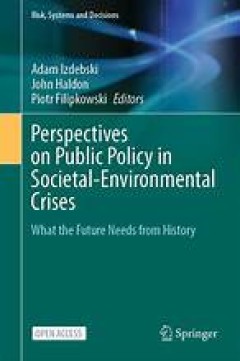
Perspectives on Public Policy in Societal-Environmental Crises
Histories we tell never emerge in a vacuum, and history as an academic discipline that studies the past is highly sensitive to the concerns of the present and the heated debates that can divide entire societies. But does the study of the past also have something to teach us about the future? Can history help us in coping with the planetary crisis we are now facing? By analyzing historical s…
- Edition
- 1
- ISBN/ISSN
- 978-3-030-94137-6
- Collation
- -
- Series Title
- Springer Cham
- Call Number
- IX, 347
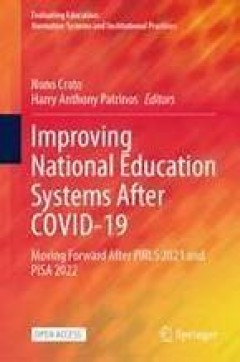
Improving National Education Systems After COVID-19
This open access book compares and analyses the results in twelve countries of the two latest international student assessments: Progress in International Reading Literacy Study 2021 (PIRLS) and the Programme for International Student Assessment 2022 (PISA) and tries to disentangle the effects of the pandemic from the long term trends in education.
- Edition
- 1
- ISBN/ISSN
- 978-3-031-69283-3
- Collation
- -
- Series Title
- Evaluating Education: Normative Systems and Institutional Practices
- Call Number
- XII, 203

Managing Risk and Information Security
Examine the evolving enterprise security landscape and discover how to manage and survive risk. While based primarily on the author’s experience and insights at major companies where he has served as CISO and CSPO, the book also includes many examples from other well-known companies and provides guidance for a management-level audience. Managing Risk and Information Security provides thoug…
- Edition
- 1
- ISBN/ISSN
- 978-1-4842-1455-8
- Collation
- -
- Series Title
- 20 illustrations in colour
- Call Number
- XXVII, 187

Hypergraph Computation
This open access book discusses the theory and methods of hypergraph computation. Many underlying relationships among data can be represented using graphs, for example in the areas including computer vision, molecular chemistry, molecular biology, etc. In the last decade, methods like graph-based learning and neural network methods have been developed to process such data, they are particula…
- Edition
- 1
- ISBN/ISSN
- 978-981-99-0185-2
- Collation
- -
- Series Title
- Artificial Intelligence: Foundations, Theory, and Algorithms
- Call Number
- XVI, 244
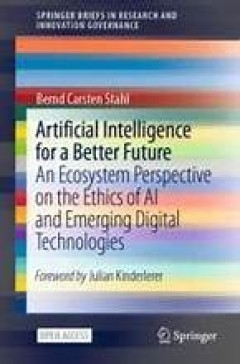
Artificial Intelligence for a Better Future
This open access book proposes a novel approach to Artificial Intelligence (AI) ethics. AI offers many advantages: better and faster medical diagnoses, improved business processes and efficiency, and the automation of boring work. But undesirable and ethically problematic consequences are possible too: biases and discrimination, breaches of privacy and security, and societal distortions such as…
- Edition
- 1
- ISBN/ISSN
- 978-3-030-69978-9
- Collation
- -
- Series Title
- SpringerBriefs in Research and Innovation Governance
- Call Number
- X, 124

xxAI - Beyond Explainable AI: International Workshop, Held in Conjunction wit…
This is an open access book. Statistical machine learning (ML) has triggered a renaissance of artificial intelligence (AI). While the most successful ML models, including Deep Neural Networks (DNN), have developed better predictivity, they have become increasingly complex, at the expense of human interpretability (correlation vs. causality). The field of explainable AI (xAI) has emerged with t…
- Edition
- 1
- ISBN/ISSN
- 9783031040832
- Collation
- X, 397
- Series Title
- -
- Call Number
- -
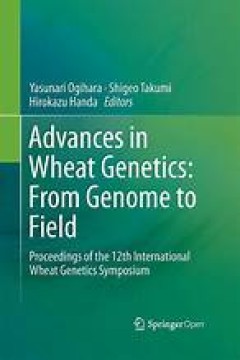
Advances in Wheat Genetics: From Genome to Field
This proceedings is a collection of 46 selected papers that were presented at the 12th International Wheat Genetics Symposium (IWGS). Since the launch of the wheat genome sequencing project in 2005, the arrival of draft genome sequences has marked a new era in wheat genetics and genomics, catalyzing rapid advancement in the field. This book provides a comprehensive review of the forefront of wh…
- Edition
- 1
- ISBN/ISSN
- 978-4-431-55675-6
- Collation
- -
- Series Title
- XVI, 445
- Call Number
- 572

Digital Interaction and Machine Intelligence
This book is open access, which means that you have free and unlimited access. This book presents the Proceedings of the 9th Machine Intelligence and Digital Interaction Conference. Significant progress in the development of artificial intelligence (AI) and its wider use in many interactive products are quickly transforming further areas of our life, which results in the emergence of various…
- Edition
- -
- ISBN/ISSN
- 978-3-031-11432-8
- Collation
- -
- Series Title
- -
- Call Number
- -
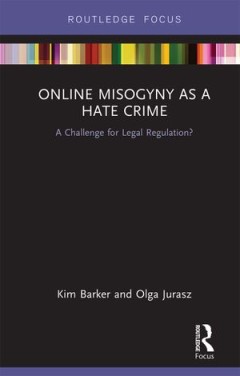
Online Misogyny as Hate Crime : A Challenge for Legal Regulation?
The ideal of an inclusive and participatory Internet has been undermined by the rise of misogynistic abuse on social media platforms. However, limited progress has been made at national – and to an extent European – levels in addressing this issue. In England and Wales, the tackling of underlying causes of online abuse has been overlooked because the law focuses on punishment rather than me…
- Edition
- -
- ISBN/ISSN
- 9780429956805
- Collation
- 146 halaman
- Series Title
- -
- Call Number
- 340 BAR o
 Computer Science, Information & General Works
Computer Science, Information & General Works  Philosophy & Psychology
Philosophy & Psychology  Religion
Religion  Social Sciences
Social Sciences  Language
Language  Pure Science
Pure Science  Applied Sciences
Applied Sciences  Art & Recreation
Art & Recreation  Literature
Literature  History & Geography
History & Geography